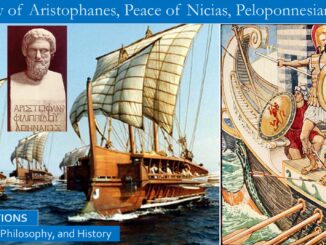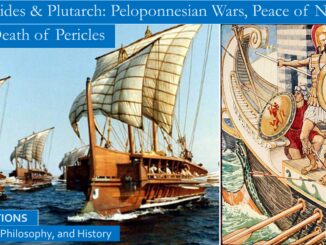
Aristophanes’ Comedy on the Peace of Nicias, Peloponnesian Wars
Although many people in Athens and Sparta were opposed to the Peace of Nicias, and definitely most Spartan allies opposed the peace, many Athenians and Spartans were weary of war, so the peace did somewhat hold for six years. The play “Peace” by Aristophanes won second prize at the Dionysian Festival just a few days before the ratification of the Peace of Nicias, it celebrates the peace and a return to the idyllic life in the countryside. This play, the Peace, reflects the yearning of many Greeks for peace at last. […]

